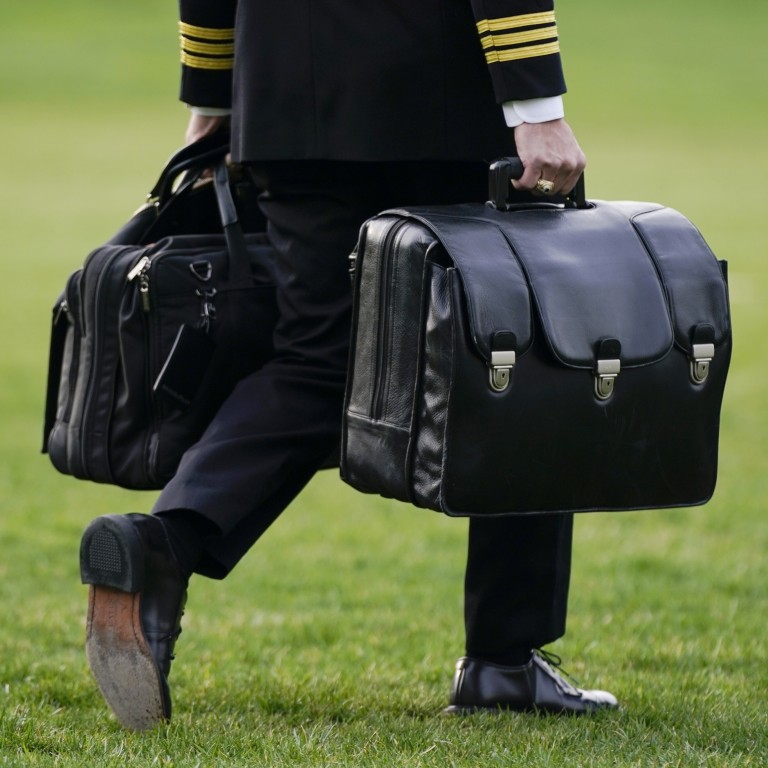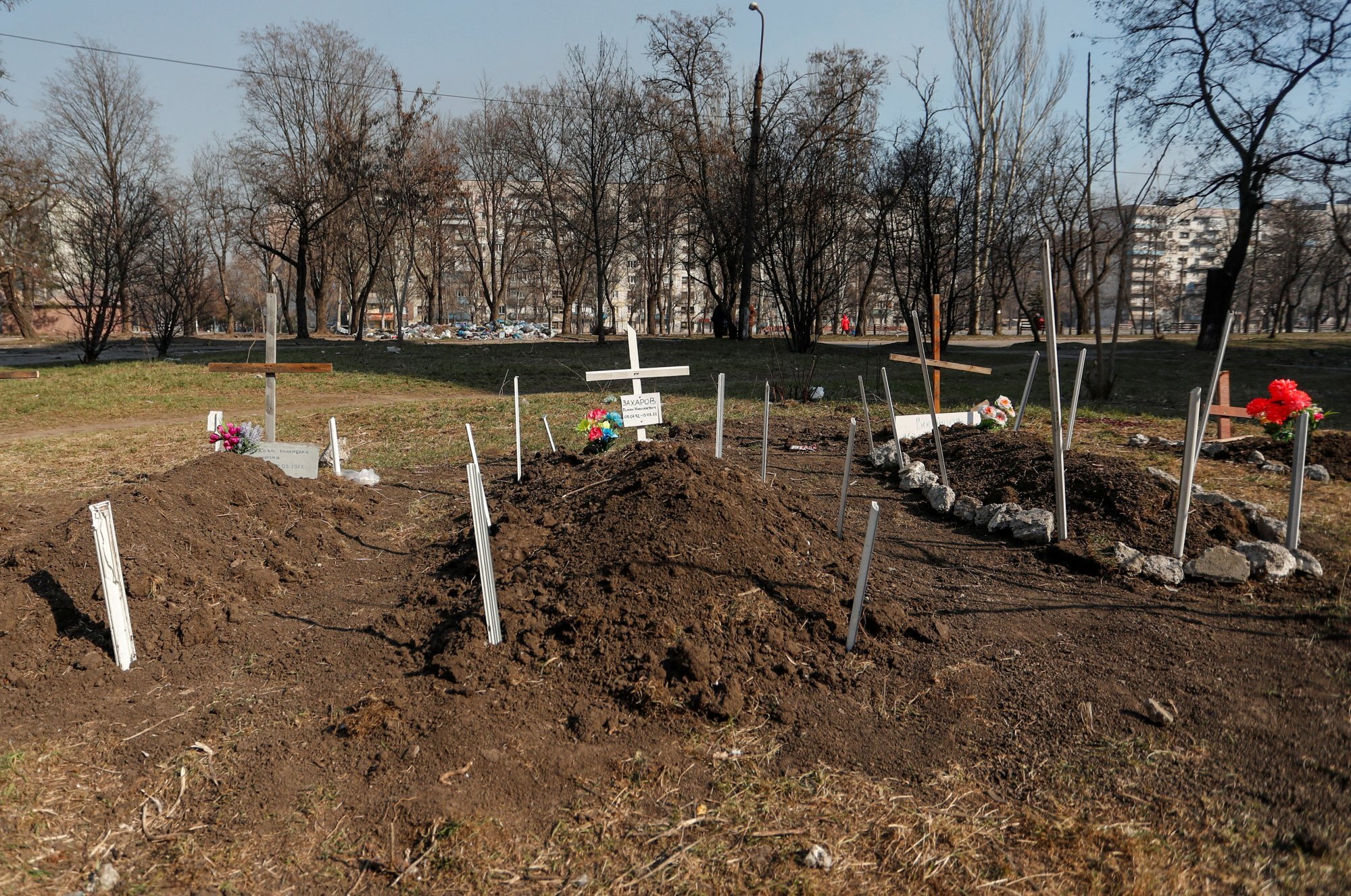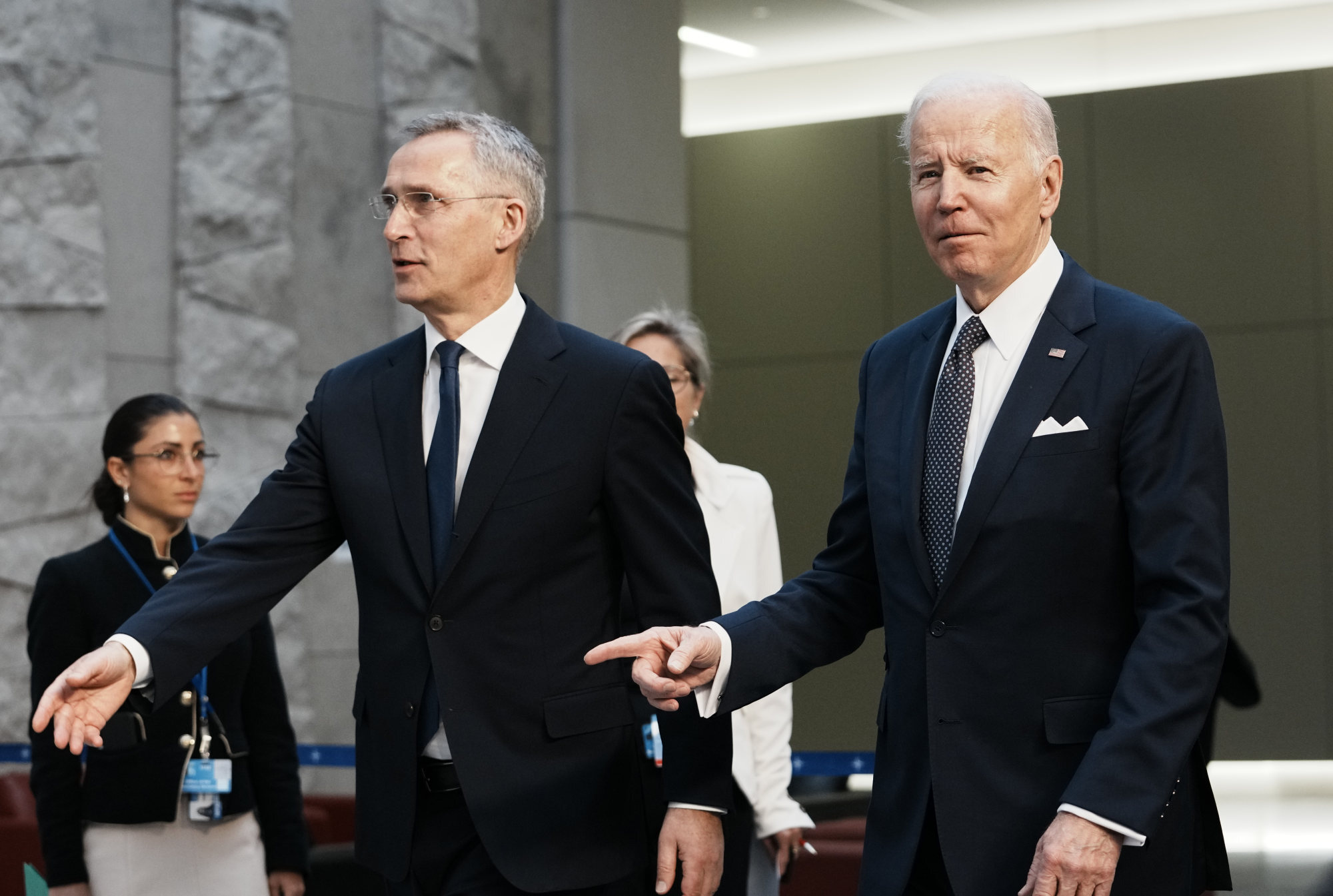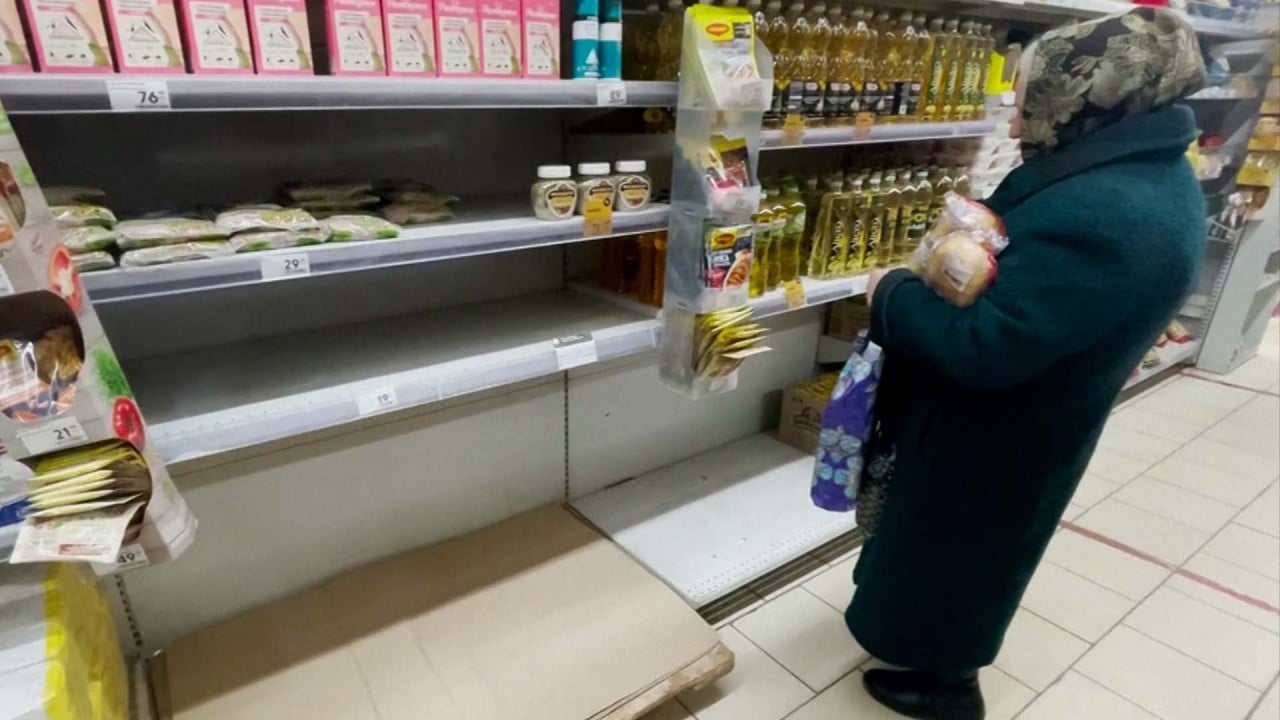
Ukraine war: US, Nato prepare for Russian nuclear incident
- Senior US official said Washington is working with allies to deter Moscow from using weapons of mass destruction
- Concerns Putin will lash out after his military suffered heavy losses, with estimates that 7,000–15,000 Russian troops have died
The US is working with Nato to prepare for possible biological or nuclear attacks by Russia as the world’s leading developed nations plan to warn President Vladimir Putin against deploying such weapons.
As Russia’s invasion remains stalled one month into the conflict, a senior US official said Thursday that Washington is working with allies on preparation and deterrence postures over Russian weapons of mass destruction, as well as on potential medical and other countermeasures to help Ukraine.
The official spoke as President Joe Biden met with Nato leaders in Brussels, one day after US National Security Adviser Jake Sullivan played down the risks of a nuclear attack.
China aims to expand use of nuclear power amid threat of energy crisis
Group of Seven leaders plan to say that they will continue to impose “severe consequences” on Russia by fully implementing the sanctions that countries have already imposed and stand ready to apply additional measures.
“We task the relevant ministers in a focused initiative to monitor the full implementation of sanctions and to coordinate responses related to evasive measures, including regarding gold transactions by the Central Bank of Russia,” according to a draft of a joint statement that the leaders plan to issue Thursday.

Biden is in Brussels for a trio of summits with Nato, the G7 and the European Union as world leaders display their unity in countering Russia’s invasion and try to come up with measure to cope with the economic fallout.
Russia has suffered punishing losses in the opening weeks of the conflict, with Nato estimates suggesting that at least 7,000 troops have died and noting the actual death toll could be as high as 15,000.
The UK defence ministry said Thursday that Russia is likely looking to mobilise its reservist and conscript manpower, as well as private military companies and foreign mercenaries.
Ukraine, meanwhile, showed an unexpected unity and strength over the past month despite severe attacks against civilian targets and as millions of people fled their homes.

President Volodymyr Zelensky has said Russian soldiers have killed more Ukrainian civilians than soldiers. The images of Moscow’s siege of cities like Mariupol have only galvanised Ukrainians to stage protests against Russian troops.
“We still have a very difficult period ahead of us,” Ukrainian Defence Minister Oleksii Reznikov said in Facebook post marking the first month of the war. “The Russian war machine will not stop until it is drowned in the blood of its own soldiers. The Russian society is already experiencing some of the consequences but is intimidated and passive.”
Ukraine will fight on as it will “not let anyone take our state away from us,” he added. “The state which generations of Ukrainians dreamed of, fought and died for.”
Despite the heavy losses, Putin has shown no sign of reversing of course, even as the flurry of economic sanctions imposed by the US, EU and the UK take an increasing toll. There’s growing evidence of shortages of goods in Russia as consumers start to feel the impact of sweeping sanctions.
The US warnings on chemical and nuclear incidents suggests growing concern that Putin will lash out with his military suffering heavy losses. Biden, speaking at the White House Wednesday, said there’s “a real threat” that Russia will use chemical weapons.
Russia says would use nukes only in face of ‘existential threat’
But Sullivan suggested Wednesday the US does not have specifics on whether Putin’s planning has changed.
“We haven’t seen anything that is made us adjust our posture – our nuclear posture, but it’s, of course, something that we will have to continue to stay in close consultation with allies and partners on, as well as communicate directly to the Russians on,” Sullivan said.
On Thursday, G7 nations were also planning to call on other countries to enforce sanctions and refrain from providing support to Russia. “Moreover, we urge all countries not to give military or other help to Russia to help continue its aggression in Ukraine,” the draft statement says.
Biden was all smiles when he arrived at the Nato summit Thursday, chatting and shaking hands with his counterparts during a pre-meeting photo-op.
But the niceties belie a challenge for the US president: the summit meetings are a test of his ability to project power in the face of Russian aggression and rally allies around tougher sanctions to punish Moscow for invading Ukraine. The president is facing pressure to quickly ratchet up penalties on Moscow, as Ukraine war enters its second month.
A day earlier, Biden warned that he saw a “real threat” that Putin will deploy chemical weapons in Ukraine.
The G7 leaders also plan to pledge help for nations as they try to wean themselves off their dependence on Russian oil. “We will ensure secure alternative and sustainable supplies, and act in solidarity and close coordination in the case of possible supply disruptions,” the draft says. The leaders also call on oil- and gas-producing nations to increase deliveries.
The US and EU are expected to announce a deal on Friday aimed at slashing Europe’s dependence on Russia energy.


